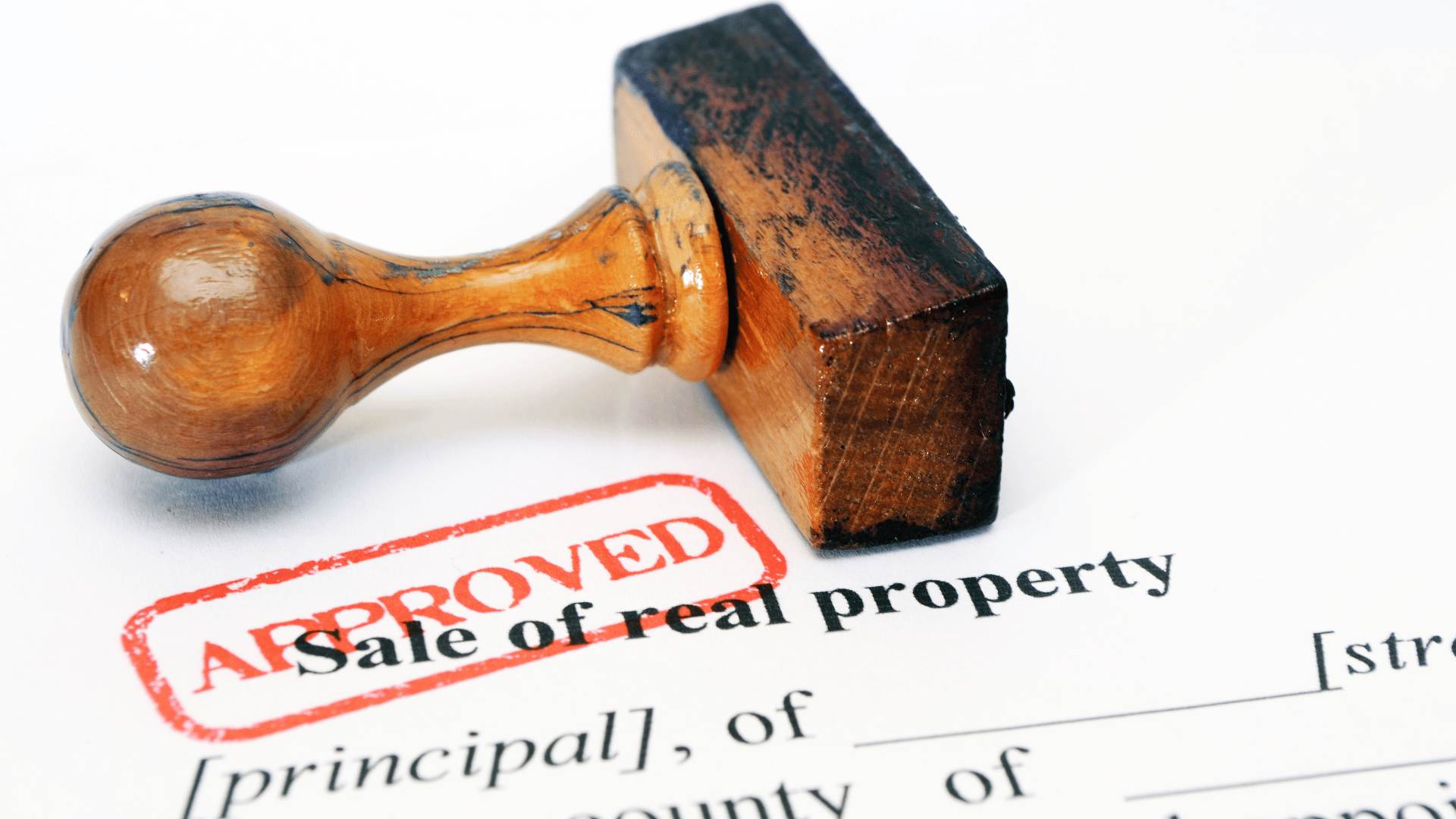If you are familiar with real estate buying and selling, you may have already heard of the terms "sale deed" and "absolute sale deed." A notarized Deed of Absolute Sale is one of the requirements of the Bureau of Internal Revenue (BIR) in order to transfer the land title documents in the name of the seller to the buyer. It also serves as evidence of the transaction.
Now, here’s the question that’s usually asked by the confused: Are deeds of sale and deeds of absolute sale two different things? Here’s the answer: yes.
It may be vague for you, but believe it or not, they are different. However, don’t worry! We’ll help you understand more, so keep reading this article.
The Importance of Legal Documents in Real Estate Property
Real estate purchasing and selling can be quite difficult, especially at first. It's fair to feel scared, given how much legal paperwork you must prepare and comprehend. To buy or sell a house or a condo, being familiar with the relevant legal paperwork will protect you against dishonest and malicious actions carried out by people who aim to transact in bad faith. Knowing all of these documents is crucial for ensuring secure and easy transactions when buying or selling real estate. Knowing each one in turn is crucial for ensuring your safety while buying or selling a certain property.
The deed of absolute sale of land is among the most significant legal documents in a real property transaction. This paperwork demonstrates that the property was sold.
Deed of Sale or Sale Deed
The legal document that transfers real estate ownership from the seller to the buyer is the deed of sale. A deed of sale safeguards both the buyer and the seller. The Deed of Sale serves as written proof to the buyer that they paid the seller for and now possess the property. This document is extremely clear in that it outlines the key parameters of the deal and uses the sale and purchase agreement as a cross-reference for the remaining specifics.
When paying the required real estate taxes, you must present this document to the tax authorities and pay them. You must also present it to the Register of Deeds when you want the buyer of a property to receive a transfer certificate of title.
Here are the advantages of having a deed of sale:
Legal proof of ownership: It is used to date property records and transfer property taxes. It also acts as legal proof of ownership of a particular piece of property.
Clear title: This is a mechanism for the parties to transfer ownership even if there are liens or other encumbrances on the property. It is often utilized when a claim to clear title to the property cannot be established.
Flexibility: It can be altered to contain particular clauses that meet the needs of both the buyer and the future seller.
Protection for the interests of both parties: The seller's warranties and representations, such as that the property is free from liens, mortgages, and other encumbrances, as well as the buyer's contingencies, such as the completion of specific repairs or improvements to the property before the sale is deemed final, can protect both parties' interests.
A Deed of Sale with the Right to Repurchase: It enables the seller to recover the property by paying the agreed-upon sum to the buyer within a specific time frame. When a seller is having financial troubles and needs to quickly raise money, this sort of deed of sale may be used as long as the seller retains the right to later purchase the property.
Deed of Absolute Sale/AAbsolute Sale Deed
A deed of absolute sale is necessary for a real estate transaction to be completed. This legal document distributes assets, including property rights, to one party. The deed is evidence that it actually took place. Once you have signed the documents, it is assumed that you have fully comprehended the transfer of ownership rights from the seller to the buyer.
It's also crucial to remember that the deed of absolute sale shouldn't contain any more stipulations besides the buyer's payment date.
Here are the advantages of having a deed of absolute sale:
Ownership that is clear and complete: The sale gives the buyer clear and complete ownership of a piece of property that has been sold by its previous owner. This means that the property is transferred to the new owner after the document is signed and completed, and the previous registered owner loses all rights to it.
Legal evidence of ownership: The sale is used to date property records and transfer property taxes. It also acts as legal evidence of the ownership of a particular piece of property.
Simple: It is an easy-to-understand legal document that conveys title to the property without the need for any conditions to be satisfied before the sale is deemed complete.
Certainty and Clarity: Because it is a legally binding instrument that makes it obvious that the seller no longer has any rights to or interests in the property, it offers certainty and clarity.
No right to repurchase: It does not include any clauses allowing the seller to repurchase the property, hence it constitutes a complete transfer of ownership.
Flexibility: Specific terms and conditions, such as guarantees and representations by the seller and contingencies for the buyer, can be incorporated into a Deed of Absolute Sale to meet the interests of the buyer and the seller.
The Difference Between a Sale Deed and an Absolute Sale Deed: A Summary
Even though it would appear that the only significant distinction between a deed of sale and a deed of absolute sale is the words that make them up, there is a significant distinction between them, both of which are legal papers used to transfer ownership of real land.
Let us give you a brief summary of their differences.
The absolute deed of sale, which is recorded in the Registry of Deeds, conveys all rights to the new owner instantly upon payment, in contrast to the subject deed of sale. Various terms must be met before the property's title can be transferred, according to a deed of sale. On short-term payment contracts, conditional sales are typical.
In conclusion, a deed of absolute title gives the buyer total and irrevocable ownership of the said property, but a deed of sale gives the buyer ownership subject to a number of conditions or contingencies that must be satisfied before the transaction is deemed to be final.
Composition of a deed of sale
The following details are normally included in a deed of absolute sale:
1. The Title Deed
Verify that the document's opening part clearly states the title, "Deed of Absolute Sale".
2. Parties Involved
It must accurately identify both the selling and purchasing parties. Because of this, for example, if the seller is married, the spouse must confirm their consent, so their name must also be included. Other information must be provided, including age, legal status, citizenship, and mailing address.
3. Property Particulars
It must provide a complete description and address of the land area, including its borders, technical description, and Transfer Certificate of Title number.
4. Contract for Purchase and Sale
This determines the price and, along with the price, settles the terms and conditions of the agreement, making it one of the most important and significant elements.
5. Execution
The contracting parties must sign the document after it has been written. Along with the parties who are to sell and buy, witnesses must also sign each page of the documentation. It must be acknowledged and notarized by a lawyer in front of a notary public in order to be valid.
A crucial part of getting ready to purchase or sell a property is understanding the paperwork used in real estate professional transactions. Before signing a contract, make sure you completely understand this paperwork so that you can carry out the transaction legally and steer clear of potential costly errors.
Property buyers should be aware of the distinctions between an absolute deed of sale and a deed of sale. So if you’re planning to buy a real property, let’s say a condominium, make sure to do your research well.
For more information on Vista Residences, email [email protected], follow @VistaResidencesOfficial on Facebook, Twitter, Instagram, and YouTube, or call the Marketing Office at 0999 886 4262 / 0917 582 5167.









